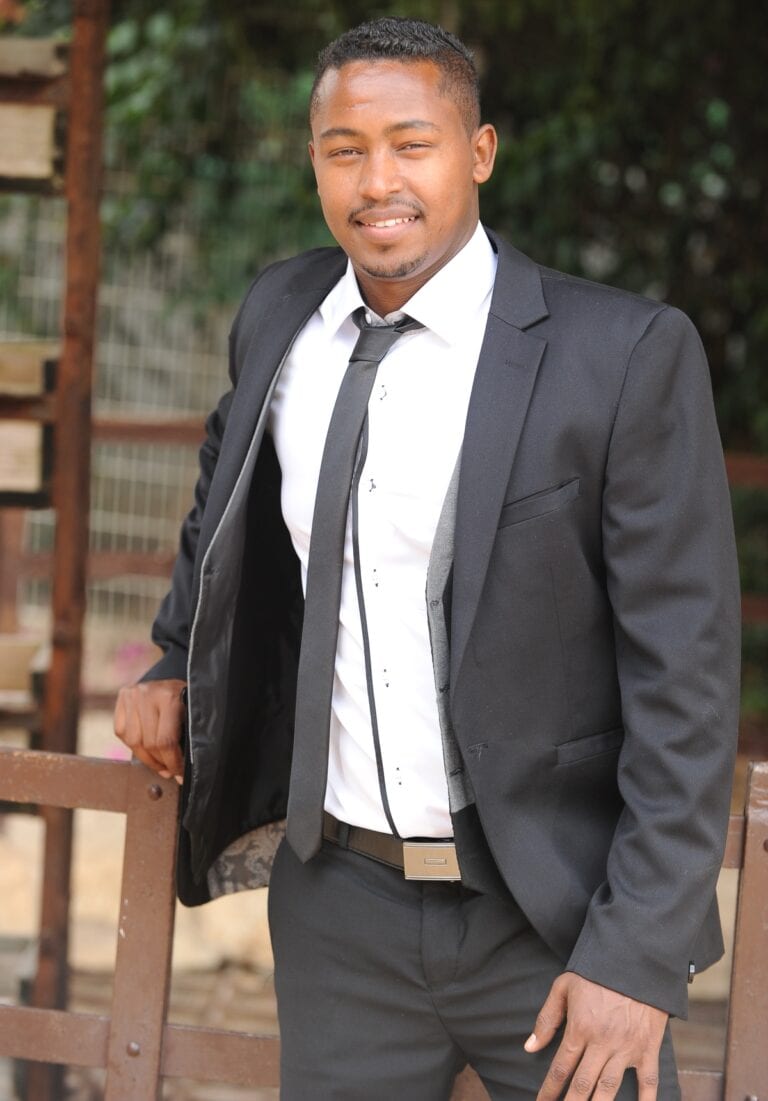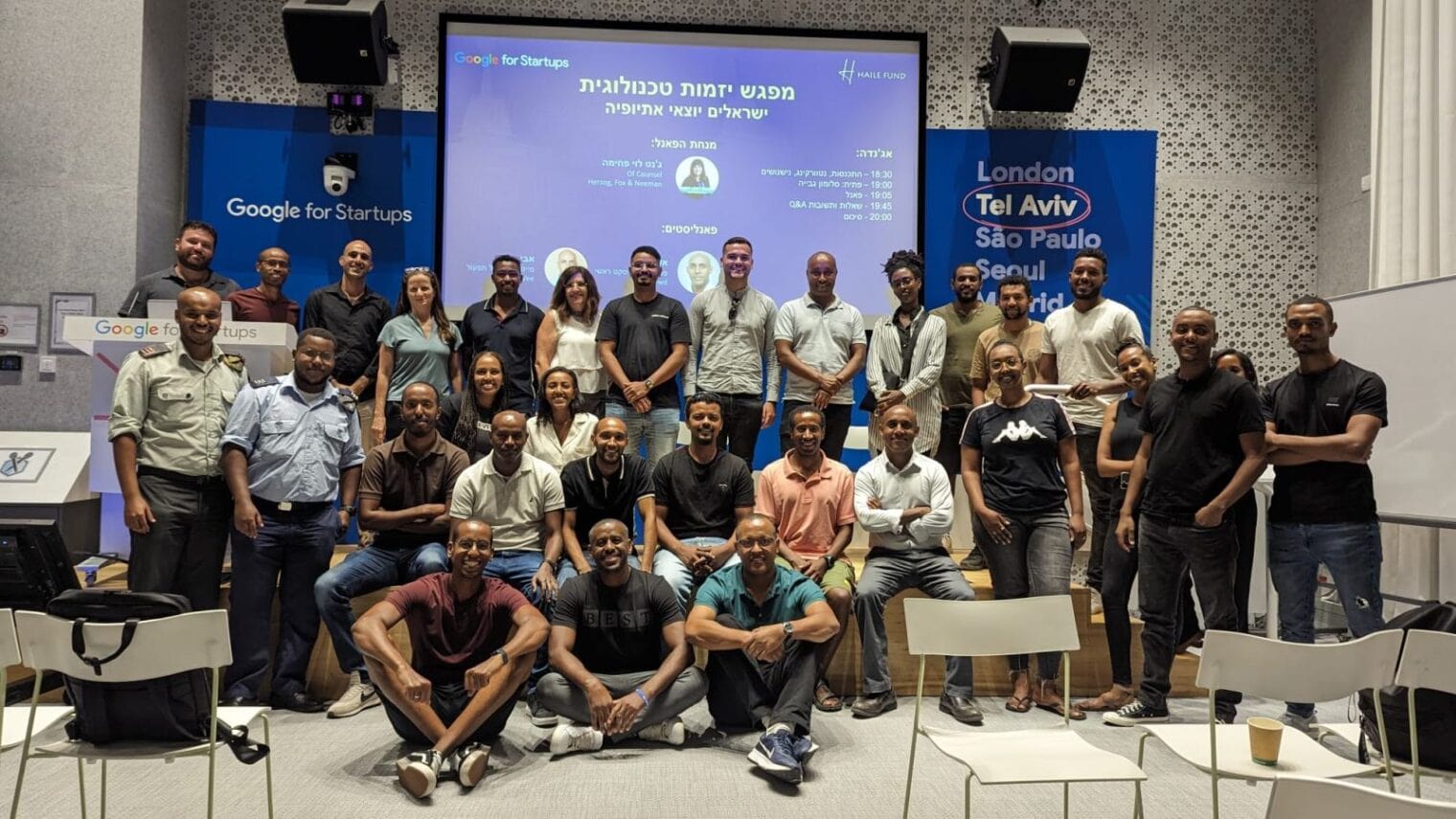Solomon Geveye recently established the Haile Venture Capital Fund, the first investment vehicle for pre-seed startups with disruptive technologies in which at least one founder is from Israel’s Ethiopian community.
Haile means “within my power” in Amharic. Geveye hopes to empower fellow Israeli Ethiopians to explore high-tech entrepreneurship, a path few take and that he has trailblazed.
In 2019, he founded the IEA (Israel, Ethiopia, America) consultancy to facilitate projects between Israeli startups, and some American companies, in advanced African countries such as Nigeria, South Africa and Ethiopia.
In 2021, he and two Israeli Ethiopian cofounders started MetekuAI to combat fake news and disinformation on social media with automated, AI-powered credible content generation and distribution.
“Like other startups, it’s having challenges now,” he admits. “I’m still a partner there but I took a step back to focus on this new passion of mine.”
Infant stages
Geveye says that about 2,000 Israeli Ethiopian professionals are currently integrated into high-tech but not in top management positions.
“We really have potential in terms of talent, and the situation gets better every year, but in entrepreneurship we are in the infant stages,” he says.
In comparison to efforts encouraging entrepreneurship among haredim (ultra-Orthodox Jews), Arabs and women, he says, “the private and public sector wasn’t putting in resources to make it happen.”
The plan is for Haile to open an entrepreneurship and acceleration program at Reichman University’s Google and Reichman Tech School this summer, backed by the Israel Innovation Authority. Geveye currently has 13 early-stage companies in the pipeline seeking pre-seed investment.
Among them are GoatPlay, a sports-tech startup bringing advanced IoT (Internet of Things) to playground games; Trado, an AI-powered ecommerce platform for buyers and sellers to manage their money simply and transparently; and health-tech startup Inhalify, which lets parents continuously monitor a child’s inhaler usage, enabling doctors to create personalized treatment plans.
Trailblazer
Geveye, now 38, was six years old when he and his family were airlifted to Israel in 1991 during an operation that brought more than 14,300 Ethiopian Jews to the historic homeland they’d never seen but always yearned for.
A gifted student, he earned a degree in economics at Ariel University through an academic reserves program of the Atidim (Futures) organization, which helps talented young people from underserved and marginalized communities pursue meaningful careers.
After graduation and officer training in the Israel Defense Forces, he served as an IDF economist for seven and a half years. He earned a master’s in business administration along the way.
“About 300 economists manage the whole IDF budget,” he tells ISRAEL21c. “It was a challenging and great experience to be handling multimillion-dollar budgets and having discussions with brigadier generals at such an early age. It was like jumping into deep water.”

Completing his service in 2014 with the rank of captain, Geveye got married and relocated to California, where his wife earned her MBA while he worked in finance and ran a boutique security company.
“We always intended to come back to Israel at some point, but we returned after five and a half years, in early 2019, because my mother was ill and I wanted to take care of her,” says Geveye. “I am grateful that I was here, and not far away, when she passed.”
Overcoming challenges
Geveye notes that his wife is of Iraqi and Romanian heritage, so their three young children are racially mixed. Yet he believes they can prosper in Israel unhindered by discrimination, if they follow his example of working hard to achieve their goals.
He acknowledges, however, that Ethiopian immigrants faced a lot of obstacles, and prejudice is one of them.
“In my opinion, even though I experienced some racist incidents as a kid and in school, I see it as something that is not systematic but that happened to the Moroccans and Yemenites before me, and in some sense to the Russians as well. Israel hasn’t really learned how to absorb immigrants, especially those from weaker financial backgrounds,” he says.
At the same time, overcoming difficulties has a silver lining: “Studies show that immigrants who have experienced challenges in acclimatization have valuable skills and traits that can make them successful entrepreneurs, including adaptability, resilience, and a high tolerance for risk.”

These traits are important for Geveye himself as he tries to attract investment in Haile during a difficult time in Israel.
“Until the war, we were in discussions with VCs and angel investors to back our VC. Because of the war, we now have some funding problems. The Israel Innovation Authority wasn’t able to give us the full budget we expected and other partners are rethinking their investment,” he explains.
“We have a gap of $150,000 to start the program this July. We are optimistic but still looking for backers to join us. We are making lots of efforts to make it happen.”
Social change
Haile advisory board member Ifat Lavi, who has a PhD in biomedical engineering and 25 years of experience in the medical device industry and entrepreneurship, says Haile has the potential “to increase the number of Ethiopians in Israel’s high-tech industry and by that to create a social change for them.”
Lavi also is a technology reviewer at the Israel Innovation Authority and a board member of Haile partner organization Tech-Career, which trains Israeli Ethiopians for high-tech jobs.
She tells ISRAEL21c that she’d like to see some of the thousands of the community’s computer science and engineering graduates already employed in high-tech become managers within their companies.
“The goal is not just to found startups, but to go from junior roles to more leading roles,” she explains.
“I believe the high-tech industry is the engine of the Israeli economy. When I was young, everyone said the army is the best area for integration but today I think it’s the high-tech industry.”
For more information, contact Geveye on LinkedIn.
















